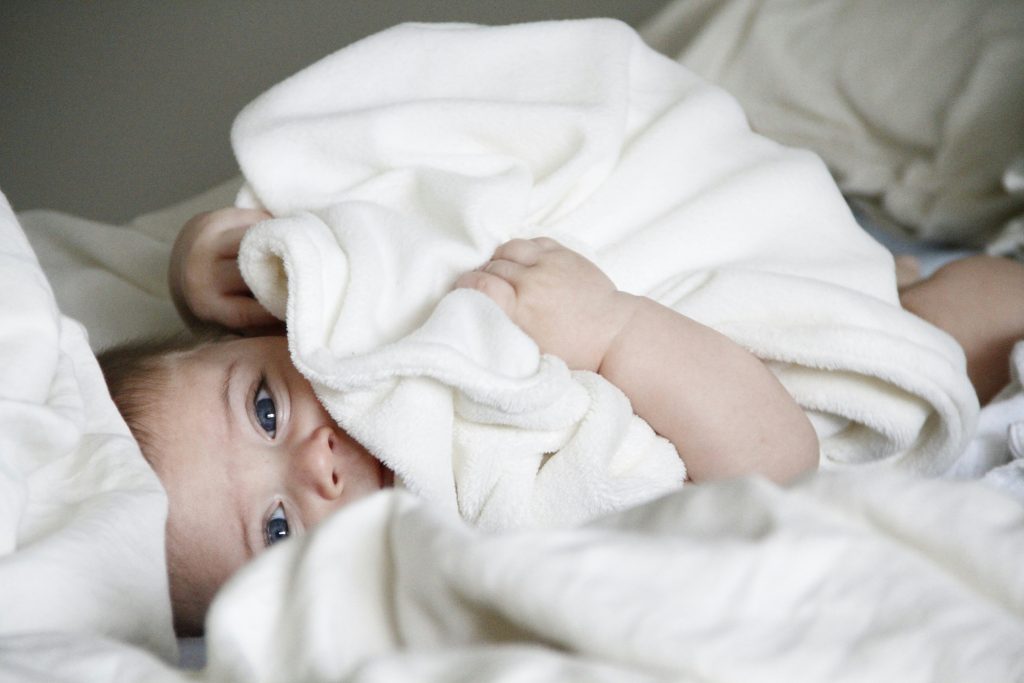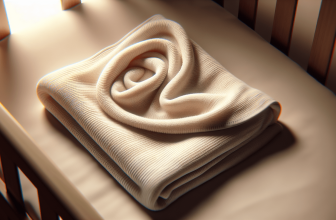Having a baby comes with countless joys and challenges, and occasional skin irritations are one of those challenges that many parents face. From diaper rash to eczema, these common baby skin irritations can cause discomfort and worry for new parents. But fear not! In this article, we will provide you with a step-by-step guide to soothing and treating these irritations, giving you the tools and knowledge you need to keep your little one’s skin happy and healthy. So, grab a cup of tea, sit back, and let us guide you through the wonderful journey of caring for your baby’s delicate skin.
Identify the Common Baby Skin Irritations
Diaper Rash
Diaper rash is one of the most common skin irritations that babies experience. It occurs when the skin in the diaper area becomes irritated due to prolonged exposure to moisture, friction, and bacteria. Signs of diaper rash include redness, inflammation, and sometimes even small bumps or blisters. To prevent diaper rash, it is important to change your baby’s diaper frequently and keep the area clean and dry.
Eczema
Eczema is a chronic skin condition that often affects babies. It is characterized by dry, itchy, and inflamed skin. The exact cause of eczema is unknown, but it is believed to be related to genetic and environmental factors. Eczema can flare up at any time and can be triggered by irritants such as harsh soaps, certain fabrics, and allergens. To manage eczema, it is crucial to keep the skin well-hydrated and to identify and avoid triggers.
Cradle Cap
Cradle cap, also known as seborrheic dermatitis, is a common condition that affects the scalp of babies. It is characterized by thick, yellowish or brownish scales on the scalp, which can sometimes spread to the face and other parts of the body. Cradle cap is not harmful or contagious, but it can be unsightly and cause discomfort for your little one. To address cradle cap, gentle scalp massages, mild baby shampoos, and combing out the flakes can be effective.
Heat Rash
Heat rash, also known as prickly heat or miliaria, occurs when the sweat ducts become blocked and sweat gets trapped under the skin. This can happen when babies become overheated or during hot and humid weather. Heat rash appears as small red bumps or blisters and can be itchy and uncomfortable for your baby. To alleviate heat rash, dress your baby in lightweight clothes, keep the environment cool, and use calamine lotion to soothe the affected areas.
Ensure Proper Hygiene
Regular Bathing
Proper hygiene is essential when it comes to preventing and managing baby skin irritations. Regular bathing helps to keep the skin clean and free from any potential irritants or allergens. It is recommended to bathe your baby every 2-3 days, using warm water and a gentle baby cleanser.
Gentle Cleansing
When bathing your baby, it is important to use a mild baby cleanser that is specifically formulated for delicate baby skin. Harsh soaps or cleansers can strip away the natural oils on the skin and cause dryness and irritation. Look for products that are hypoallergenic, fragrance-free, and gentle on the skin.
Moisturizing
After bathing, it is crucial to moisturize your baby’s skin to keep it hydrated. Use a baby moisturizer that is fragrance-free and formulated for sensitive skin. Apply the moisturizer gently all over your baby’s body, paying extra attention to areas that are prone to dryness and irritation.

This image is property of images.unsplash.com.
Diagnose the Cause of Irritation
Allergies
Allergies can play a significant role in causing skin irritations in babies. Common allergens include certain foods, pet dander, dust mites, pollen, and certain fabrics. If your baby is experiencing persistent or recurrent skin irritations, it may be helpful to consult with a pediatrician to determine if allergies are the underlying cause.
Chemicals in Products
Certain chemicals found in skincare products, laundry detergents, and even baby wipes can irritate your baby’s delicate skin. It is important to read the labels carefully and choose products that are free from harsh chemicals, fragrances, and other potential irritants. Opt for gentle, natural, or hypoallergenic options whenever possible.
Weather Conditions
Weather conditions can also contribute to baby skin irritations. Cold and dry weather can cause dryness and flakiness, while hot and humid weather can lead to heat rash and sweat-related irritations. Protect your baby’s skin by dressing them appropriately for the weather and ensuring the environment is comfortable and well-ventilated.
Bacterial or Fungal Infections
Bacterial or fungal infections can sometimes be the cause of skin irritations in babies. Common infections include diaper yeast infections and impetigo. If your baby’s skin becomes infected, it is important to seek medical attention to receive appropriate treatment, which may include topical creams or oral medications.
Consult a Pediatrician
Seek Professional Advice
If your baby is experiencing persistent or severe skin irritations, it is recommended to consult with a pediatrician. They can provide proper diagnosis, determine the underlying cause of the irritation, and suggest appropriate treatments.
Understand the Severity of the Condition
A pediatrician will evaluate the severity of your baby’s skin condition by examining the affected areas, asking about any accompanying symptoms, and considering your baby’s overall health. Understanding the severity of the condition is crucial in determining the most effective course of treatment.
Follow Recommended Treatments
Once your pediatrician has diagnosed the cause of the irritation, they will recommend specific treatments to help soothe and heal your baby’s skin. This may include prescription creams, ointments, or oral medications. It is important to follow the recommended treatments diligently and seek further advice if you have any concerns or if the condition does not improve.

This image is property of images.unsplash.com.
Choose the Right Products
Avoid Harsh Chemicals
When it comes to selecting skincare products for your baby, it is important to avoid harsh chemicals that can potentially irritate their delicate skin. Look for products that are free from sulfates, parabens, phthalates, and artificial fragrances. Natural and organic options can be a great choice as they are often gentler on the skin.
Opt for Fragrance-Free Products
Fragrances, even those labeled as “baby-friendly,” can sometimes cause skin irritations in babies. To minimize the risk, opt for fragrance-free or unscented products. These are less likely to contain potential allergens or irritants that could trigger a reaction.
Select Gentle Detergents for Laundry
The detergent you use to wash your baby’s clothes and bedding can also impact their skin. Choose a mild, hypoallergenic detergent specifically formulated for baby clothes. Avoid using fabric softeners or dryer sheets, as these can leave residues on the fabric that may irritate your baby’s skin.
Manage Diaper Rash
Keep the Area Clean and Dry
To prevent and manage diaper rash, it is essential to keep the diaper area clean and dry. Change your baby’s diaper frequently, especially when it is soiled or wet. Use gentle wipes or damp cloths to clean the area, and pat it dry with a soft towel or allow it to air dry before putting on a fresh diaper.
Use Protective Barrier Creams
Applying a protective barrier cream or ointment to your baby’s diaper area can help create a barrier between the skin and moisture, reducing the risk of diaper rash. Look for products that contain zinc oxide or petroleum jelly. These can help soothe and protect the skin from irritation.
Change Diapers Frequently
Regular diaper changes are crucial in preventing and managing diaper rash. Leaving your baby in a wet or soiled diaper for an extended period can increase the risk of irritation. Aim to change your baby’s diaper every 2-3 hours or whenever it is soiled to keep their skin clean and dry.

This image is property of images.unsplash.com.
Treat Eczema
Apply Moisturizers Regularly
Moisturizing is key when it comes to managing eczema in babies. Applying a moisturizer multiple times throughout the day helps to keep the skin hydrated and prevent dryness and itchiness. Look for moisturizers that are specifically formulated for eczema-prone skin and free from fragrances and other potential irritants.
Identify Triggers and Avoid Them
Eczema flare-ups can often be triggered by certain irritants or allergens. Common triggers include certain fabrics, harsh soaps, heat, sweat, and certain foods. Pay attention to when and where your baby’s eczema flares up and try to identify potential triggers. Once identified, take steps to avoid or minimize exposure to these triggers.
Use Mild Steroid Creams as Recommended
In more severe cases of eczema, your pediatrician may recommend the use of mild steroid creams or ointments to help reduce inflammation and manage the symptoms. These should only be used as directed by your pediatrician and for the specified duration. It is important to follow their instructions carefully and monitor your baby’s response.
Address Cradle Cap
Gently Massage the Scalp
Cradle cap can often be resolved by gently massaging the scalp with your fingers or a soft brush. This helps to loosen and remove the scales, allowing the natural oils to moisturize the scalp. Be gentle and avoid applying too much pressure to prevent any discomfort or irritation.
Use Mild Baby Shampoos
Choosing a mild baby shampoo specifically formulated for cradle cap can help address this condition. Look for shampoos that contain ingredients such as salicylic acid or tea tree oil, as these can help to exfoliate the scales and reduce inflammation. Follow the instructions on the bottle and lather the shampoo gently onto your baby’s scalp.
Comb Out the Flakes
After massaging and shampooing, use a fine-toothed comb or a soft brush to gently comb out any remaining flakes from your baby’s scalp. Take care to be gentle to avoid causing any discomfort or injuring your baby’s delicate skin. Repeat this process regularly until the cradle cap resolves.
Alleviate Heat Rash
Dress Baby in Lightweight Clothes
To prevent heat rash, dress your baby in lightweight and breathable clothing that promotes airflow and helps to wick away moisture. Choose loose-fitting garments made from natural fibers such as cotton, as these allow for better ventilation and reduce the risk of sweat becoming trapped against the skin.
Keep the Environment Cool
Maintaining a cool and comfortable environment is crucial in preventing heat rash. Use fans or air conditioning to keep the temperature down, especially during hot and humid weather. Avoid overdressing your baby or exposing them to direct sunlight for long periods, as this can increase the likelihood of heat rash.
Use Calamine Lotion
If your baby develops heat rash, applying calamine lotion to the affected areas can provide relief and soothe the itchiness. Calamine lotion has cooling properties and helps to calm the skin. Gently apply a thin layer to the affected areas and avoid rubbing or scratching the rash, as this can worsen the irritation.
Try Natural Remedies
Apply Coconut Oil
Coconut oil is a natural remedy that can be effective in soothing and moisturizing your baby’s skin. It has antimicrobial and anti-inflammatory properties that can help alleviate irritations such as diaper rash, eczema, and cradle cap. Apply a thin layer of coconut oil to the affected areas and gently massage it into the skin.
Use Oatmeal Baths
Oatmeal baths are known for their soothing properties and can help alleviate itching and inflammation caused by skin irritations. Place a small amount of finely ground oatmeal in a bathtub filled with warm water and mix it thoroughly. Soak your baby in the oatmeal bath for 10-15 minutes and gently pat their skin dry afterward.
Aloe Vera Gel for Soothing
Aloe vera gel is another natural remedy that can provide soothing relief for baby skin irritations. It has cooling and anti-inflammatory properties that help to reduce redness and calm itchiness. Look for pure, organic aloe vera gel and apply a thin layer to the affected areas. Allow it to dry before dressing your baby.
In conclusion, taking care of your baby’s skin requires proper hygiene, understanding the causes of skin irritations, seeking professional advice when needed, choosing the right products, and incorporating natural remedies. By following these steps and being aware of your baby’s skin needs, you can help soothe and alleviate common baby skin irritations, ensuring your little one is comfortable and happy. Remember to always consult with a pediatrician if you have any concerns or questions regarding your baby’s skin health.








